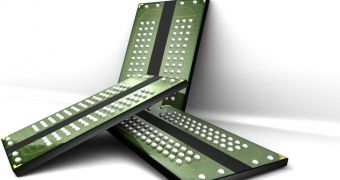Over the past few months, we noted, repeatedly, that the long period of price cuts to random access memory (RAM) was over and that prices were going back up. As some may expect, there are those who consider this suspicious.
The reason is quite understandable really: demand for DRAM is still dropping, so how can there be a price improvement?
An executive of a South Korean electronics company has told the Korea Times website that it is likely that global memory chip makers are fixing the prices.
Another DRAM customer has said a similar thing, after analyzing the weak PC demand and how expensive modules and kits are getting.
LPDDR (low profile DDR memory) is the only one with any measure of justification for the expenses, since demand for mobile products is still good.
“Seeing these data, I personally believe there is a possibility that producers could be engaged in a pattern of anti-competitive acts and practices as they did in the past, resulting in adverse effects on consumers,” said the customer.
Samsung Electronics, SK Hynix Semiconductor, and Micron Technology are the main suppliers of RAM. Micron even controls the shipments of Elpida, though the acquisition isn't exactly done even now.
In any case, the three have been cutting DRAM production constantly since November. At first, it only prevented further slips, but then prices started growing. At this point, the contract prices are about 35% higher, which seems a bit much for such short a time, and for the continued weak marketing conditions. Micron is supposedly facing the harshest critics, from South Korean clients at any rate.
“It is quite strange that the global memory chip market is seeing unexpected price rises amid less demand for conventional personal computers. It is highly possible that the chipmakers are engaged in price-fixing,” said the aforementioned South Korean electronics firm executive. “Among other firms, Micron Technology is apparently using its commanding position to manipulate computer chip prices. We are watching it closely.”

 14 DAY TRIAL //
14 DAY TRIAL //